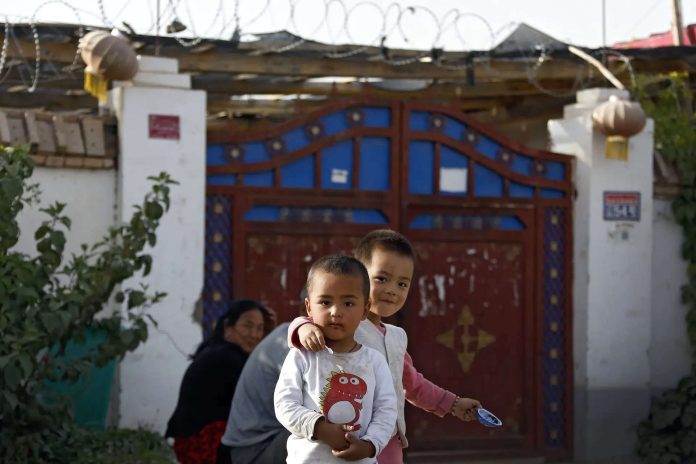For last many years, numerous reports have emerged of mosques being demolished, religious symbols being removed, and the practice of Islam being heavily restricted in China’s Xinjiang province. Xinjiang, officially the Xinjiang Uyghur Autonomous Region, is home to around 12 million Uyghurs, a Turkic ethnic group predominantly following Islam. The region has a history of tension and conflict, with periodic violence attributed to separatist and extremist movements.
Following a series of violent incidents in the 2000s and 2010s, which the Chinese government attributed to Uyghur separatists, Beijing intensified its security measures in the region.
Driving the news
Now, as per a Foreign Policy report, Beijing’s crackdown techniques, honed in Xinjiang, are being used against new targets in China.
During Ramzan, Muslims in Yuxi, China, received an alarming WeChat message from the Bureau of Ethnic and Religious Affairs. The notice authorized surveillance of fasting schoolchildren and instructed local authorities to investigate minors’ participation in fasting and other religious activities, the Foreign Policy report said.
“The Party Committee, governments, education, and sports bureaus of all levels should investigate the participation of minors in fasting and other religious activities,” the notice said. It emphasized adherence to the separation between education and religion and called for strengthening the education and guidance of teachers, students, and the majority of young people.
Why it matters
The Hui, a significant Muslim minority in Yuxi, face increased scrutiny under China’s Sinification campaign, echoing tactics used on Uyghurs in Xinjiang.
This includes restrictions on religious practices and heightened surveillance, signaling an expansion of measures initially targeted at Uyghurs to other Muslim groups in China.
In 2018, Xi chaired the national conference on education, where he urged teachers to prioritize identification with the party among the national youth. “If the first button is wrongly buttoned,” he said, “all the remaining buttons will be wrongly buttoned. Life must be buttoned up right from the beginning.”
China’s assimilation policy seeks to integrate ethnic minorities into Han Chinese culture. This involves removing halal signs, altering mosque architecture, and now, monitoring religious practices among Hui youth. The campaign aims to create a unified national identity by diminishing cultural and religious distinctions among minorities.
Between the lines
Yuxi’s notice reflects broader efforts to separate minority children from their cultural and religious heritage. Similar measures affect Uyghur, Tibetan, and Inner Mongolian children, aiming to instill loyalty to the Communist Party from a young age.
The techniques being used now on the Hui were first honed on Uyghurs and other Turkic Muslim minorities in Xinjiang, where a high-tech surveillance state monitors virtually every aspect of Muslim behavior.
The Hui community, partly descended from Arab and Persian traders, speaks Mandarin and is racially indistinguishable from the Han majority.
As per the FP report, despite their long history of assimilation, the Hui community, often considered China’s “model Muslim minority”, find themselves at the epicenter of a nationwide Sinification campaign that started in 2016.
The fallout
Civil servants in Yuxi are forbidden from wearing headscarves, and veiled Hui teachers must submit new profile photos without headscarves.
The policing of Islam in schools, under the guise of separating religion from education, restricts children from participating in religious retreats and activities.
This surveillance and restriction have intensified since the 2014 knife attack in Kunming, linked to Uyghur separatists.
What’s next
As surveillance techniques from Xinjiang spread to other regions, the Hui’s religious freedoms continue to erode. The increased monitoring and restrictions suggest a growing crackdown on Muslim practices across China.
This approach mirrors the treatment of Uyghurs, raising concerns about the future of religious and cultural freedoms for all Muslim minorities in China.
The international community has reacted strongly to China’s actions in Xinjiang. Various countries, including the United States, have imposed sanctions on Chinese officials and entities implicated in human rights abuses.
The US government has labeled the situation a genocide, while other nations have called for independent investigations. Despite widespread condemnation, China denies any wrongdoing, maintaining that its policies in Xinjiang are necessary for national security and stability.









































